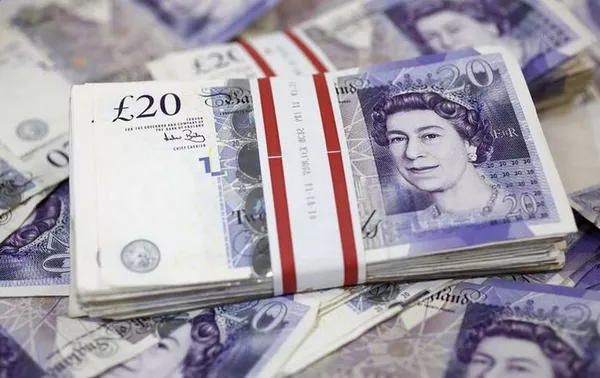The strength of a nation’s currency is a critical indicator of its economic health, and the recent weakening of the UK pound has raised concerns among economists, businesses, and the general public. In this article, we will delve into the various factors contributing to the depreciation of the UK pound, exploring both domestic and international influences that have played a role in this phenomenon.
Economic Uncertainty
One of the primary reasons behind the weakening of the UK pound is the prevailing economic uncertainty. Uncertainty can be a result of various factors, such as political instability, Brexit-related concerns, and the ongoing global economic challenges. Investors tend to shy away from currencies associated with uncertainty, leading to a decrease in demand for the pound. As a consequence, the value of the currency drops, contributing to its overall weakness.
The prolonged negotiations and discussions surrounding the UK’s departure from the European Union (EU) have created an environment of uncertainty. The lack of clarity on trade agreements, regulatory frameworks, and economic partnerships has made businesses and investors hesitant, impacting the pound’s performance on the foreign exchange market.
Inflationary Pressures
Another factor influencing the depreciation of the UK pound is inflationary pressures. Inflation erodes the purchasing power of a currency, making it less attractive to investors. The Bank of England, the country’s central bank, closely monitors inflation rates and adjusts interest rates to maintain price stability. However, if inflation surpasses target levels, it can lead to a decrease in the real value of the pound.
Rising inflation can result from various factors, including increased production costs, supply chain disruptions, or changes in consumer behavior. In response to inflationary pressures, the Bank of England may raise interest rates, but this can have the side effect of slowing down economic growth and further contributing to the depreciation of the pound.
Trade Imbalances
The UK’s trade balance plays a crucial role in determining the strength of its currency. A persistent trade deficit, where the value of imports exceeds exports, can put downward pressure on the pound. A trade deficit requires the country to borrow from foreign sources to finance the gap, leading to an increase in external debt.
The global economic landscape, trade agreements, and geopolitical factors all contribute to the trade balance. Uncertainty in international trade relationships, changes in global demand for British goods and services, and disruptions to supply chains can impact the UK’s trade balance and, subsequently, the value of the pound.
Global Economic Factors
The UK is not immune to global economic trends, and external factors can significantly influence the value of its currency. The strength of the US dollar, economic performance in major trading partners, and geopolitical events can all contribute to the weakening of the UK pound.
For instance, if major economies experience a slowdown, it can lead to reduced demand for UK exports and negatively impact the pound. Similarly, fluctuations in commodity prices, particularly oil, can affect the UK’s terms of trade and contribute to currency depreciation.
Monetary Policy
The decisions and actions of the Bank of England regarding monetary policy play a pivotal role in shaping the value of the pound. Central banks use interest rates and other tools to achieve their monetary policy objectives, including controlling inflation and supporting economic growth.
If the Bank of England adopts a more dovish stance, signaling lower interest rates or other accommodative measures, it can result in decreased demand for the pound. Investors may seek higher returns in other currencies with more attractive interest rates, putting additional downward pressure on the UK currency.
See also When Was the GBP the Strongest?
Conclusion
The depreciation of the UK pound is a complex phenomenon influenced by a combination of domestic and international factors. Economic uncertainty, inflationary pressures, trade imbalances, global economic trends, and monetary policy decisions all contribute to the value of the currency. As the UK navigates through various challenges, including the aftermath of Brexit and the ongoing global economic landscape, a comprehensive understanding of these factors is essential for policymakers, businesses, and investors alike.


